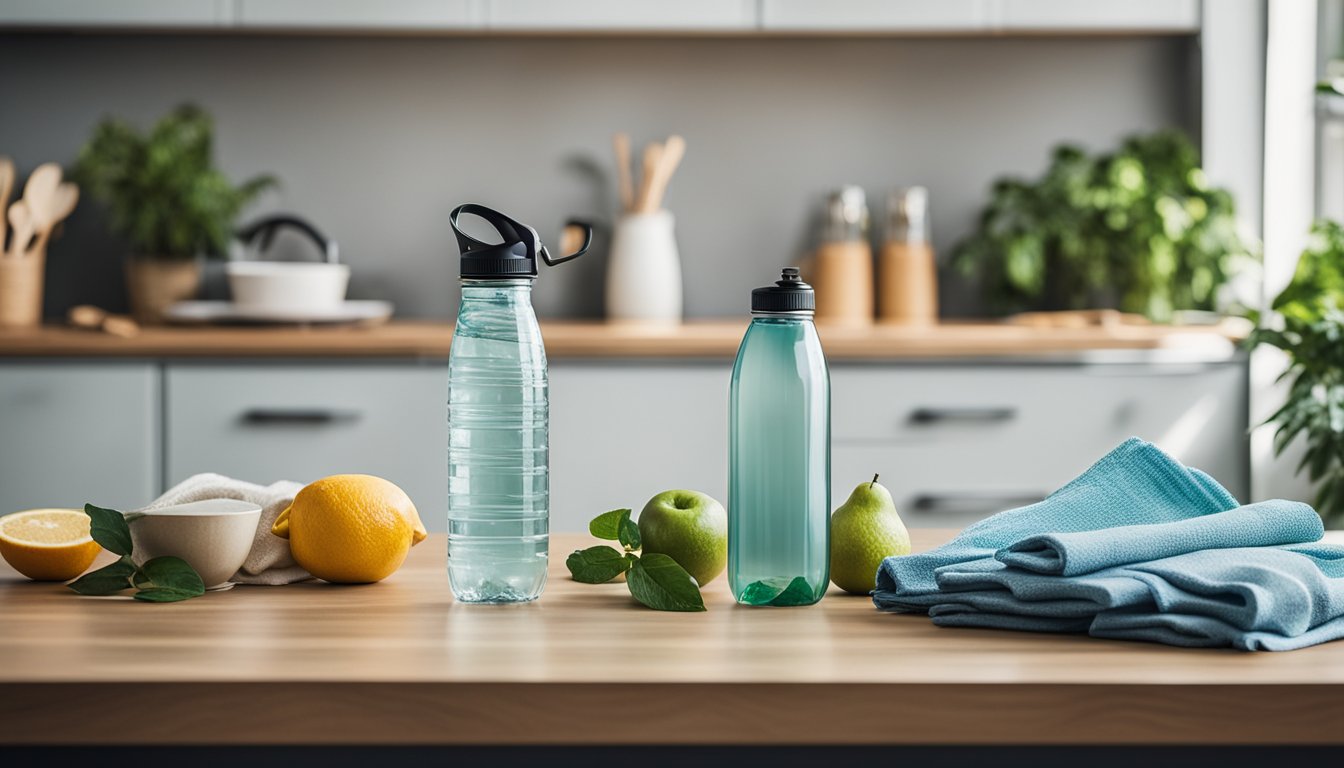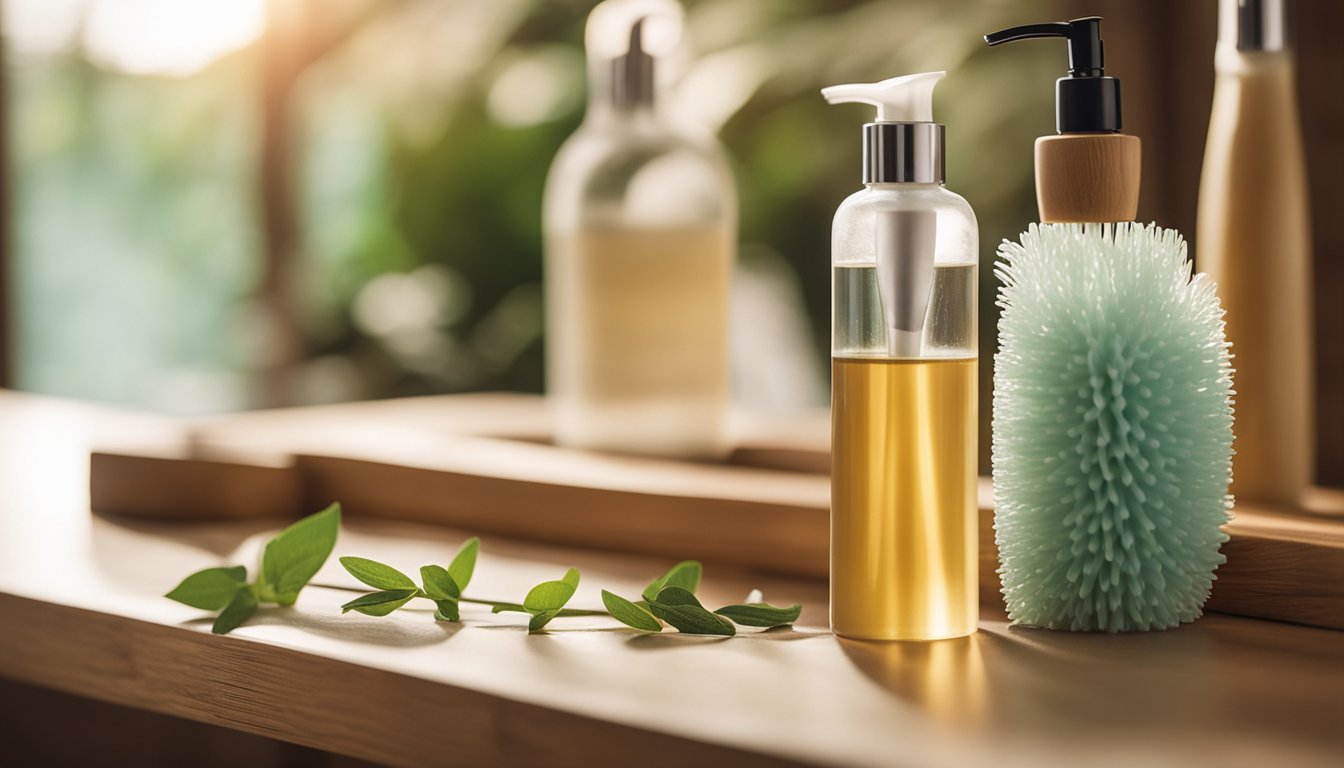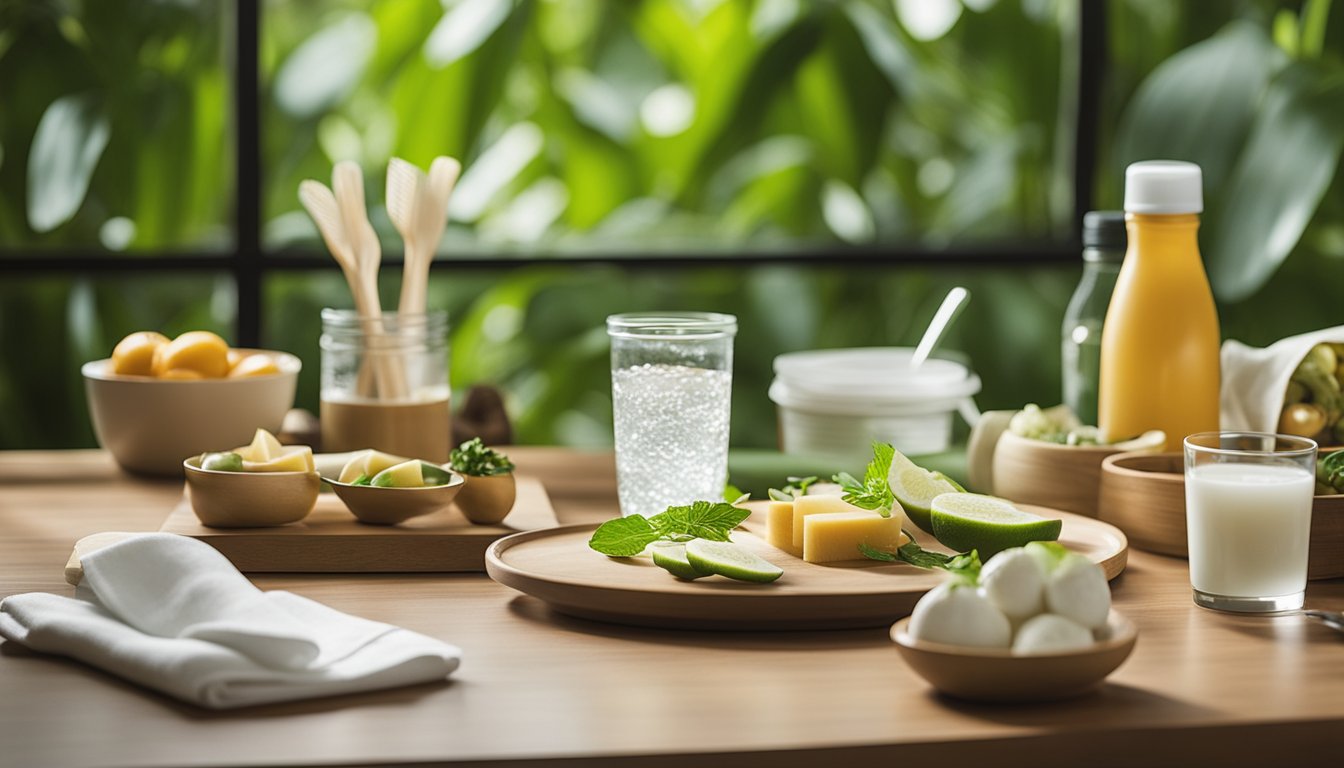Late updated: 03 Aug 2024 09:08
Written by: Sarah Hollister
Eco-Friendly Alternatives To Everyday Items: Sustainable Choices for Modern Living
In today’s world, adopting eco-friendly alternatives to everyday items is not just a trend but a necessity. Switching to these sustainable options can significantly reduce our environmental footprint and combat climate change. Whether it’s in the kitchen, through personal care products, or cleaning supplies, we can all find ways to make more environmentally conscious choices.

In our kitchens, for example, we can replace disposable paper towels with washable and reusable cotton towels. Imagine the amount of waste we can reduce by switching to a single pack of organic, carbon-neutral towels that can replace approximately 130 rolls of paper towels. Similarly, making simple changes like using compostable coffee pods or beeswax food wraps can greatly decrease the use of single-use plastics.
Personal care and cleaning products are also ripe for sustainable swaps. Bamboo toothbrushes and nylon-free dental floss are excellent choices for those looking to reduce plastic use. By integrating these eco-friendly alternatives into our daily lives, we’re not only contributing to a healthier planet but also setting a positive example for future generations.
Key Takeaways
- Switching to eco-friendly alternatives reduces our environmental impact.
- Sustainable kitchen and personal care products can replace single-use plastics.
- Simple daily changes help combat climate change and promote sustainability.
Replacing Everyday Kitchen Items
Transforming our kitchens to be more eco-friendly can significantly reduce waste and environmental impact. By adopting sustainable alternatives, we are not only making a positive contribution to the planet but also fostering healthier living.
Sustainable Food Storage Solutions
One of the key changes we can make is switching to reusable beeswax wraps instead of plastic wrap. These wraps seal tightly and keep food fresh while being biodegradable. Glass containers are another excellent option for food storage. They are durable, reusable, and free from harmful chemicals found in plastic.
Using silicone lids and reusable food storage bags can also make a huge difference. Silicone lids can fit over bowls and plates, eliminating the need for cling film. Reusable food storage bags are ideal for snacks, sandwiches, and leftovers, reducing single-use plastics.
Composting bags for kitchen waste ensure that organic matter is recycled effectively. Bamboo alternatives for cutting boards and utensils are another sustainable choice. Bamboo is fast-growing and requires fewer resources to produce than traditional wood or plastic.
Eco-Conscious Cooking and Dining
When it comes to cooking, sustainable materials make a significant impact. Eco-friendly cookware options, such as those made from recycled or natural materials, are hitting the market. Similarly, using a reusable coffee filter instead of disposable ones eliminates unnecessary waste.
Dining is another area where we can readily adopt sustainable practices. Cloth napkins replace paper ones, reducing waste and adding a touch of elegance to the meal. Compostable cutlery and bowls are perfect for picnics or takeaways, decomposing naturally instead of lingering in landfills.
Using reusable grocery bags can also extend into our kitchen practices. Not only are they great for shopping, but they can also be used to store bulk items or produce, cutting down on single-use plastic bags.
Incorporating these eco-friendly alternatives helps us lead a more sustainable lifestyle, benefiting both our health and the environment. By making thoughtful choices, we can significantly reduce our carbon footprint in the kitchen.
Eco-Friendly Personal Care and Cleaning

By making conscious choices in our personal hygiene and household cleaning routines, we can significantly reduce plastic waste and chemical pollution.
Natural Personal Hygiene Products
Switching to natural personal hygiene products can help reduce the environmental impact caused by conventional items. For instance, bamboo toothbrushes offer a sustainable alternative to plastic ones. They're biodegradable and require much less energy to produce.
Safety razors are another excellent choice as they are durable and only require the replacement of metal blades, which can be recycled. Shampoo and conditioner bars are also gaining popularity. They come packaged in minimal or no plastic and last longer than their liquid counterparts.
For oral care, the Boie toothbrush is an interesting option. It's made from a flexible, recyclable rubber-like material that is designed to last for months. When it’s time to replace it, the old brush can be sent back to the company for recycling.
Organic cotton wipes and pads can replace disposable versions for skincare routines. They're washable, reusable, and much gentler on the skin, reducing both waste and the need for single-use products.
Green Household Cleaning Alternatives
Household cleaning can be both effective and eco-friendly by opting for non-toxic and sustainable products. Vinegar and baking soda are powerful natural cleaners that can tackle a range of tasks from disinfecting surfaces to removing stains. These ingredients are biodegradable and safe for the environment.
Reusable cleaning tools like microfiber cloths are a great investment. They last longer than conventional sponges and rags and can be washed and reused multiple times. Reusable paper towels made from organic cotton, like the Mioeco Organiz Unpaper Towels, also help cut down on household waste.
When it comes to laundry, using non-toxic detergents is essential. These detergents break down more easily in water, reducing pollution in waterways. Branch Basics Concentrated Cleaner Kit is an example of a product that offers versatility for multiple cleaning needs while prioritising sustainability.
By incorporating these green alternatives into our cleaning routines, we can contribute to a healthier environment without compromising on cleanliness or effectiveness.
Frequently Asked Questions

Switching to eco-friendly alternatives can seem daunting, but there are many small changes we can make to reduce our environmental impact. From replacing plastic items to adopting greener energy sources, here's everything you need to know.
What are some environmentally friendly substitutes for common household items?
We can replace paper towels with washable, reusable cotton towels. Bamboo toothbrushes and refillable water bottles are also excellent choices. Products made from biodegradable materials, such as compostable coffee pods and eco-friendly dental floss, help reduce waste.
How can one switch to eco-friendly alternatives to plastic in daily use?
We can start by carrying reusable grocery bags and avoiding single-use plastics. Replacing plastic containers with glass or steel alternatives and using silicone wraps instead of plastic cling film are simple changes. Opting for products with minimal or eco-friendly packaging can also make a big difference.
What are examples of sustainable products that can replace traditional items?
Using solar chargers instead of traditional battery packs is a great start. Consider swapping out nylon dental floss for silk or biodegradable floss. Organic cotton bags, bamboo utensils, and reusable silicon food covers can effectively replace less sustainable alternatives.
In what ways can individuals incorporate eco-friendly solutions into their daily routines?
We can implement mindful shopping habits by choosing products with minimal packaging and prioritising quality over quantity. Simple actions like turning off lights when not in use, reducing water consumption, and composting kitchen waste contribute to a more sustainable lifestyle.
What types of eco-friendly merchandise are recommended for students?
Students can benefit from reusable water bottles and lunch containers. Bamboo or recycled notebooks, pens made from sustainable materials, and solar-powered chargers are practical options. Digital textbooks and notes also help reduce paper use.
How can the transition to greener energy sources as alternatives to fossil fuels be achieved?
Switching to renewable energy sources such as solar, wind, or hydro power is crucial. We can support energy providers that focus on green energy and consider installing solar panels at home. Advocating for policies that promote renewable energy can also drive broader change.
